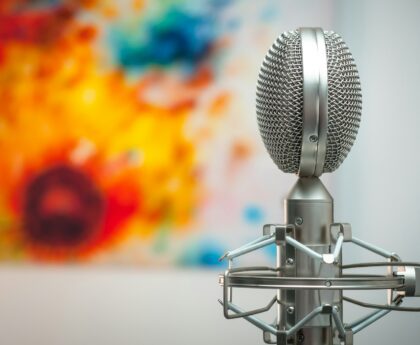The internet was once seen as a place for casual connection. People logged in to share memes, post updates, or chat with friends. But over the last decade, something powerful has shifted. Online communities are no longer just digital hangouts—they are engines of change. They are crowdfunding life-saving surgeries, organizing global climate strikes, supporting small businesses, and influencing elections.
This new era, often called “People Power 2.0,” is about more than likes and shares. It is about the ability of people—ordinary individuals spread across the world—Foundations Of Seed Germination to come together around shared identity and shared goals. Instead of waiting for governments or big institutions to lead, people are using platforms like Reddit, Discord, and TikTok to act directly. And in doing so, they are reshaping culture, business, and politics.
From Shared Posts to Shared Purpose
At first glance, online spaces can look like random noise. Memes, videos, and heated arguments fill the feeds. But underneath, there is a pattern. When people gather online, they form communities based on common interests, experiences, or struggles. These communities build bonds, trust, and identity.
That trust makes action possible. A subreddit that begins as a forum for stock tips can transform into a movement that shakes Wall Street. A Discord server that starts with gaming can evolve into a space for organizing relief during natural disasters. A Petunia, Headliner Pink Sky TikTok trend can shift into a coordinated protest with real-world impact.
The reason this works is speed. Traditional institutions often move slowly, tied up by bureaucracy. Online communities move fast. A single post can spark thousands of donations in hours. A viral hashtag can mobilize millions in days. This ability to respond quickly gives communities real power in moments of crisis.
Crowdfunding is a clear example. Instead of waiting for charities or governments, individuals now directly fund medical treatments, disaster relief, or creative projects. Platforms like GoFundMe or Kickstarter work because communities rally around a person or idea they believe in. They don’t just give money. They give visibility, encouragement, and a sense of solidarity.
Shaping Culture, Business, and Politics
The impact of online communities reaches far beyond one-time donations. They are actively shaping the way culture, business, and politics evolve.
In culture, we see this in the rise of trends and collective storytelling. Fan communities drive shows, movies, and books into mainstream success. Online challenges and viral dances reshape music charts. Stories once ignored by traditional media now gain traction because communities amplify them.
In business, communities influence markets directly. The world watched as retail investors on Reddit’s WallStreetBets boosted GameStop’s stock, creating headlines and shaking financial institutions. Sage; Salvia officinalis, Berggarten Beyond that, small businesses thrive because local groups and online supporters share their products, write reviews, and help them reach new audiences. Instead of being shaped by corporations, markets are increasingly influenced by grassroots communities.
In politics, the power of online communities is unmistakable. Climate protests, racial justice marches, and voter registration drives all gain momentum through decentralized networks. Hashtags like #MeToo or #BlackLivesMatter began online but translated into mass action offline. These movements are not led by a single figure or institution. They are fueled by the collective will of many people speaking with one voice.
Most importantly, this shift is not limited to one country or one demographic. Online communities cross borders and languages. They make it possible for global solidarity to exist in real time. A protest in one city can inspire another across the world within hours. A personal story shared online can connect with millions who have faced similar struggles.
The Decentralized Future of Collective Action
What makes People Power 2.0 different from past movements is its decentralized nature. In the past, social change often relied on leaders, organizations, or institutions to organize people. Today, communities themselves take the lead.
Decentralized action has both strengths and challenges. The strength is flexibility. Without rigid structures, communities can adapt quickly. Scindapsus pictus ‘Black Satin’ They can rise up around a single event and then dissolve or shift to something new. They can outpace traditional institutions and bring attention to issues that would otherwise be ignored.
The challenge is sustainability. Without central leadership, movements can lose focus or struggle with internal disagreements. Viral attention can fade as quickly as it arrives. But even with these limits, the decentralized model continues to thrive because it matches the pace and rhythm of our digital age.
Technology is also evolving to support this model. Platforms like Discord give communities private spaces to organize. TikTok spreads ideas through fast, visual storytelling. Reddit allows large groups to share, debate, and coordinate. Each tool serves a role, and together they create an ecosystem where collective action can flourish.
What we are seeing is not a temporary trend. It is a permanent change in how humans connect and mobilize. People no longer rely solely on governments, charities, or corporations to solve problems. They rely on each other. The internet has become the new public square, and communities are using it to claim power.
Shared Voices, Shared Futures
The rise of People Power 2.0 reminds us that when individuals connect, they become more than the sum of their parts. A meme may spark laughter, but a shared story can spark action. A single donation may help one person, but thousands of donations can transform lives. A local protest may echo in one city, but amplified online, it becomes a global movement.
We are all part of this shift. Every time we join a community, share a post, or support a cause, we take part in shaping the world around us. The tools are simple—Sempervivum; Hen and Chicks, Blue Ice a phone, a Wi-Fi connection, a sense of purpose. But the impact can be profound.
The story of People Power 2.0 is still unfolding. Yet one truth is clear: online communities are no longer just digital spaces. They are living networks of energy, imagination, and courage. And when they act together, they remind us that power has always belonged to the people—only now, it moves at the speed of the internet.
Rising Currents of Collective Strength
Change no longer waits for official permission. It flows from the ground up, carried by voices that find one another online and echo together in the real world. In this new era, we see that people, once scattered and silent, now stand connected and strong. The future belongs to communities that act, adapt, and lift one another forward.




